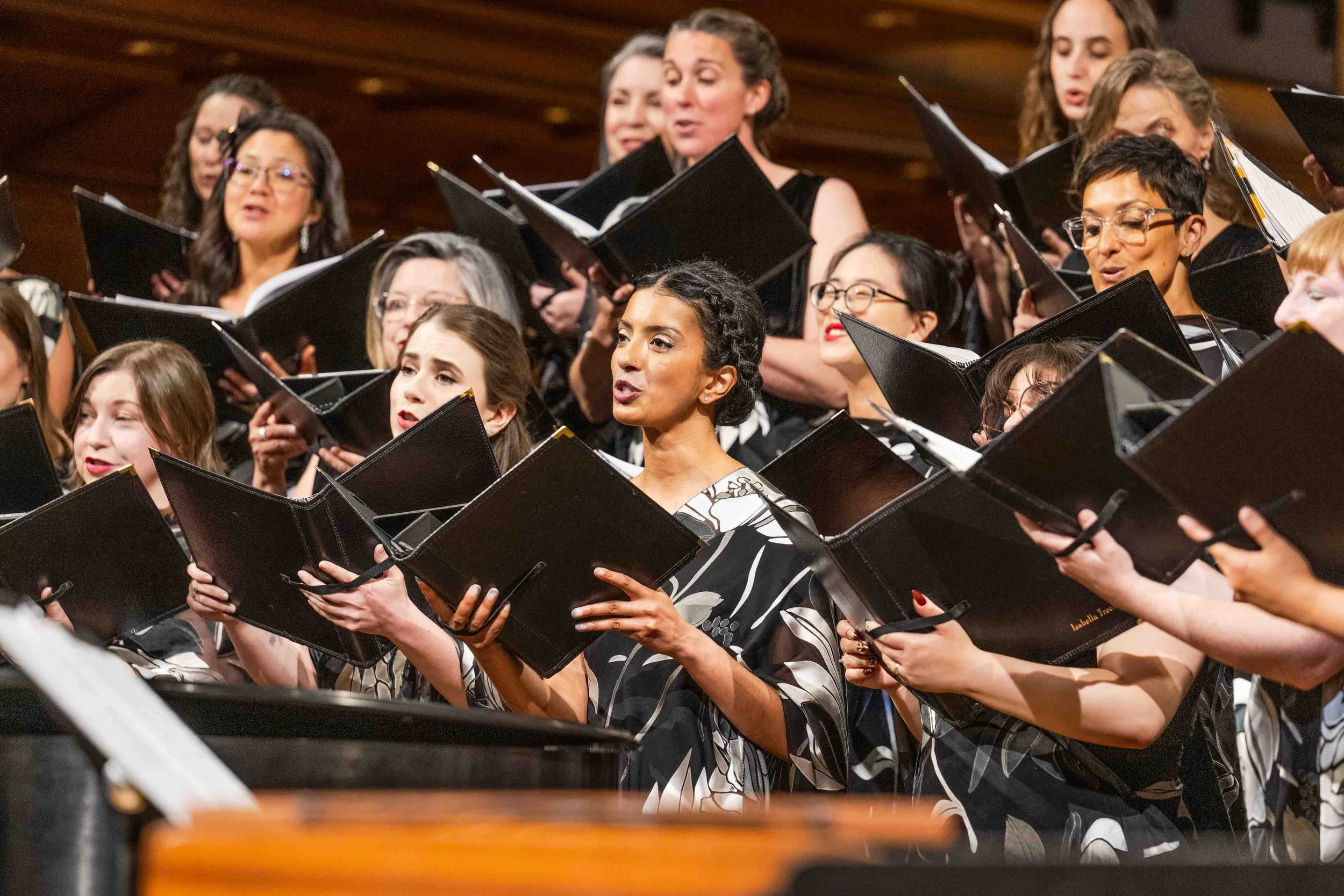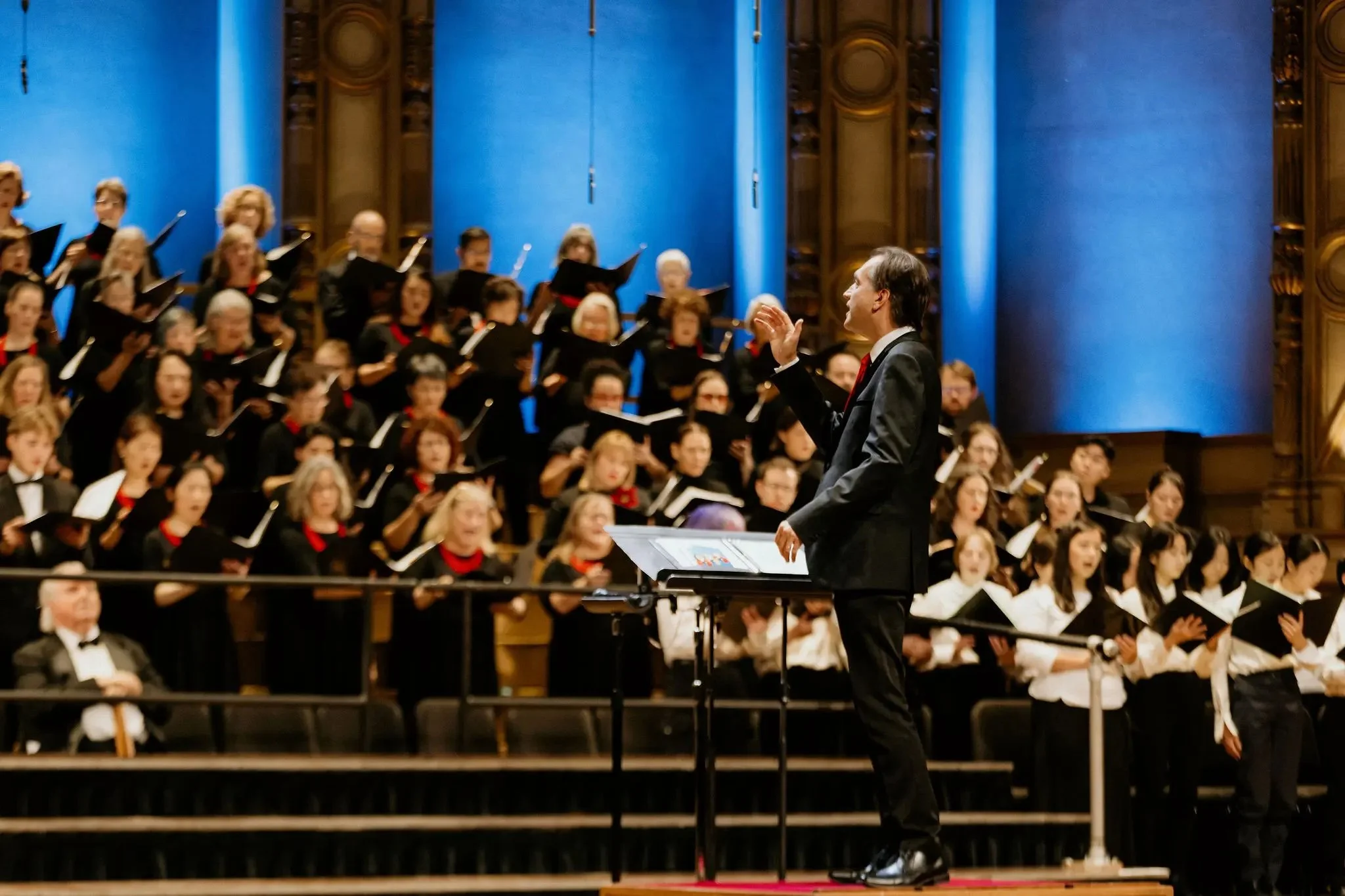Gabriel Kahane brings journeying Book of Travelers and inward-looking Magnificent Bird to Music on Main
One of the songwriter’s works grew out of a 9,000-mile train trip through Middle America, the other through COVID introspection
Gabriel Kahane. Photo by Jason Quigley
Music on Main presents Gabriel Kahane’s Book of Travelers at the Annex on May 10 and Magnificent Bird at the same venue on May 11
DESPITE HIS PRESSING need to finish “a few more seconds” of the string quartet he’s currently writing for Brooklyn Rider, the imminent return of his children from preschool, and the everyday chores that accompany being a first-time homeowner, chatting with composer, conductor, and songwriter Gabriel Kahane is not a hurried affair. Over 40 minutes on a crackly cellphone line we touch on many topics other than music, and—as one does when interviewing Americans—eventually come around to the contentious issue of gun control.
Not surprisingly, as a progressive who grew up in an artistic family, he’s for it. And yet his questioning nature is aware that the ongoing debate over gun ownership is less clear-cut than it might seem.
“I would like to live in a world without guns,” he says, boldly enough. “But I’m struck by how little curiosity there is on the left in this country about what—and this may sound like an oxymoron—the best of gun culture can be, when it comes to passing down the tradition of, say, hunting among family members. I just have this sense that a lot of folks on the left have this belief that everyone who owns a gun wants to go out and kill strangers, and I’ve literally read assertions like that on the internet. Maybe people don’t actually believe that, and they’re just trying to make the algorithm happy by saying outrageous things, but as a result the people who are reasonable, middle-of-the-road gun owners, who might otherwise support reasonable gun-control safety measures, feel both insulted and misunderstood.
“And clearly this happens in the other direction on so many issues,” he continues. “The way that people on the right marginalize people on the left is totally grotesque, but we could also do the imaginative homework of ‘Why are you coming after trans people? What is the fear behind that?’ Obviously, at the level of pundits and elected politicians, it’s a distraction from the kleptocracy of the greedy moneyed class, but I think it’s worth our time to ask what makes people vulnerable to this kind of hateful and marginalizing rhetoric.”
To his credit, Kahane has been asking those questions for quite some time. The day after the U.S. presidential election of 2016, notebook in hand, he embarked on a 9,000-mile train trip through Middle America, looking for a break from his usual compositional routine but also wondering why intolerance and fascism seemed to be on the rise in his native land. The conversations he had along the way—given context by his curiosity about similar journeys his Jewish grandparents might have taken while fleeing Hitler’s Germany—eventually became his album Book of Travelers, a remarkable and heartfelt exercise in understanding “the other”.
Kahane cites “Port of Hamburg”, which bears comparison with the best of Bertolt Brecht and Kurt Weill, as illustrating the link between his own family’s experience and the no-less-painful traumas suffered by his fellow travellers.
“With some of the stories I was telling on that album, I was asking myself ‘Do I have the right to tell these stories? What kind of act of appropriation is it?’” he says. “And this was not necessarily in the obvious ways that one would think. I mean, there were questions as much about class as there are about, say, race or ethnicity. I felt that one way to sort of justify telling those stories is that they’re from people I met on the train who told me their stories, and so their stories became a part of my story. And I just remembered that in my grandmother’s diaries, which I had read seven or eight years earlier, there were some really beautiful and poetic phrases that she’d written as a 17-year-old refugee. So I thought ‘Oh, maybe the way to justify telling all these other people’s stories is to make myself vulnerable and tell a story about my grandmother.’”
More recently, Kahane has switched his focus from family and strangers to himself, inspired in part by an unplanned move from Brooklyn to Portland, Oregon. As he tells it, he and his young family were spending some time on the West Coast so that he could work as the Oregon Symphony’s creative chair, when Covid hit. “My wife, who’s a health-care professional, said ‘We’re not getting on a plane,’” he notes, and fortunately they were in a position to buy a house.
Lockdown, the ensuing loss of work, and a fortuitous inheritance from a family friend gave Kahane time to start another writing process, and on this occasion the journey was internal. Cutting off his access to the internet and limiting his excursions into the wider world, he went on a year-long, domestic writer’s retreat, spending part of each day jotting down his preoccupations and then turning them into another body of conceptually linked songs, Magnificent Bird.
“I had really kind of shunted my own experience into a corner,” he says. “I knew that I needed to restore a place in my work for myself, even if I thought my life was kind of boring.”
Kahane is being entirely too self-deprecating. It’s true that a more conventional artist could have made something terminally mundane out of Magnificent Bird’s concerns—dreams, professional jealousy, and the pleasures of the yard—but his combination of finely honed melodies and seemingly spur-of-the-moment observations reads as an ideal fusion of 19th-century lieder and 20th-century confessional songwriting.
Kahane’s pandemic sabbatical was time well spent—and his Vancouver audiences are now going to get a COVID bonus, too. Music on Main had booked him to present Book of Travelers in 2020, but that show, unsurprisingly, was cancelled. Now, on consecutive nights, he’ll perform both his travel diary and his more inward Magnificent Bird.
It’s a pairing, he feels, that’s both generous and artistically apt.
“I do think of these as companion pieces, and they’re maybe more obviously companion pieces when they’re done live and there are these spoken stories interwoven with the songs,” he explains. “But in a very concrete sense, the idea to take a year away from the internet grew out of the train trip that I took in 2016. Somewhere during that journey I had this moment of self-awareness, like, ‘Oh my god! This is really revelatory, to be outside of the normal digital routine of the internet and the echo chamber of my life in Brooklyn. Some day I should leave the internet for more than 12 or 13 days.’
“So I was able to go on this very, very introspective journey away from the dopamine hit of likes and clicks, particularly around why I do what I do and what makes me tick,” he continues. “What is the thing that restores my spirit?”
The answer, Kahane has found, can’t be compressed into any one thing. Gazing at the hazelnut tree in his Portland yard can be as stimulating as connecting with a live audience; contemplating the pain of separation is no less nourishing than celebrating the resilience of family. And all find expression in song.













